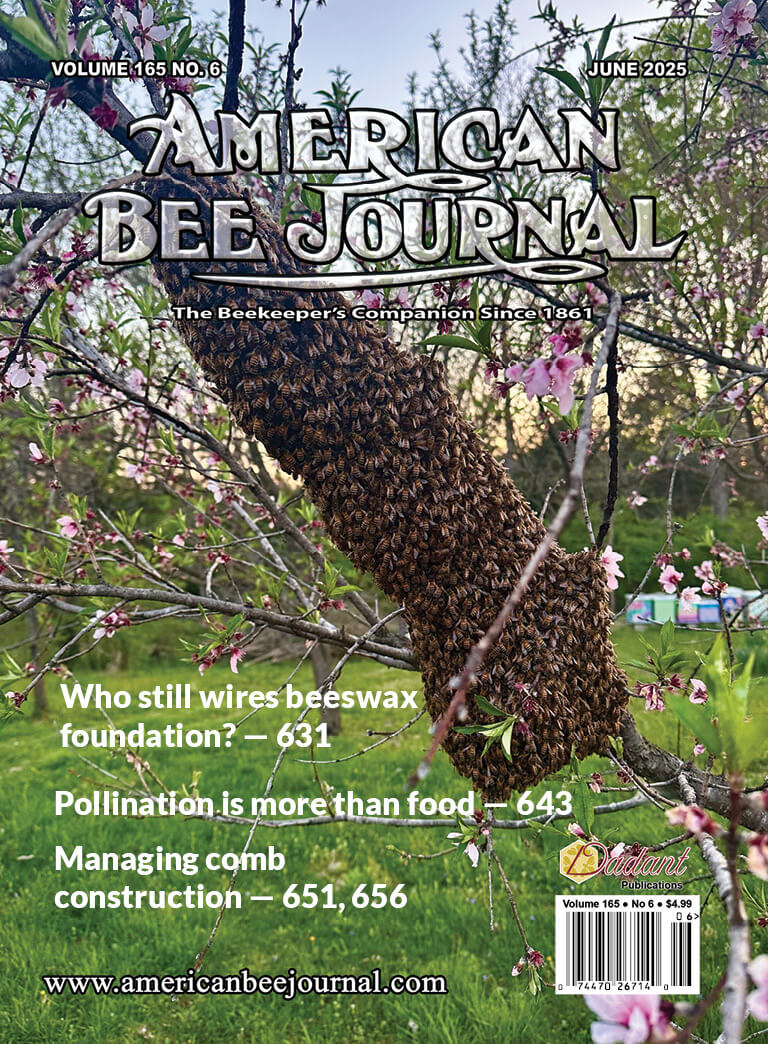Texas Apiary Inspection Service
By Mark Dykes
Chief Apiary Inspector
Texas Apiary Inspection Service
2475 TAMU
College Station, TX 77843-2475
Howdy from the Texas Apiary Inspection Service. We are based out of the Texas A&M University Entomology Department. I’m sure you are wondering why the state honey bee regulatory agency would be based out of a university—let me fill you in on the back story. Texas A&M University (TAMU) is the Land Grant Institution for the state. In 1901 the legislature of Texas established a honey bee education and research program based out of TAMU. From there a foulbrood inspection program was formed and in 1920 the state inspection service was organized. This partnership has continued now for 95 years and is going strong. One of the many benefits to this partnership is working closely with Dr. Juliana Rangel’s Honey Bee Lab (http://honeybeelab.tamu.edu/) on honey bee issues. And when I say close, I mean we are right next door to Dr. Rangel’s lab at the Janice and John G. Thomas Honey Bee Facility in beautiful College Station, Texas.
The primary duty of the Texas Apiary Inspection Service is to inspect and permit movement of honey bees in and out of Texas. Our inspection focus is on commercial migratory and honey production operations. We accomplish this through the tireless efforts of Bill Baxter, the assistant chief inspector, and Mary Reed. Together along with Linda Sebesta, administrative assistant and myself, Mark Dykes, chief inspector, we form the small but very productive Texas Apiary Inspection Service.
As is the case in other states, the number of small-scale and hobby operations is booming in Texas. In order to help serve this section of the industry the Texas Apiary Inspection Service provides educational talks to the many beekeeping clubs and at other bee-related events throughout the state. This year we also launched a new website we hope will be a valuable resource for all beekeepers (http://txbeeinspection.tamu.edu/). We are also proud to announce that Texas now has a Master Beekeeper Program (http://masterbeekeeper.tamu.edu/)! The program is administered through a partnership with Texas A&M Agrilife Research and Extension, the Texas Beekeepers Association, and Texas Apiary Inspection Service. In our first program in March, 68 beekeepers became Apprentice Master Beekeepers. The Texas Master Beekeeper Program is modeled after the Florida program created by Dr. Jamie Ellis.
Well, I hope this sheds a little light on what we do here at Texas Apiary Inspection Service. If you have any questions or a good bee joke, please feel free to email us at tais@tamu.edu and as always, keep on keeping those wonderful bees.
Q Coating Plastic Foundation
Hi Jerry,
I heard rumors that you coat your plastic foundation with beeswax. How do you do it? Does it help induce the bees to draw out comb?
Jim M.
Missouri
A
Who told you that?☺ I melt beeswax outside in a safe location on an electric hotplate. I have collected scrap beeswax from my hives, burr comb, etc. and in a crude double boiler I made out of two different size empty food cans, I melt it. I use a paint brush to apply it to uncoated or lightly coated plastic foundation.
Bees are attracted, comb is pulled/drawn from applied beeswax, so they don’t have to produce as much themselves. I just try to get a ‘coating ‘ over whole surface, not too thick and not too thin but just right….Goldilocks principle.☺
It works well. Don’t burn yourself or scorch or set the beeswax on fire or your house, garage, shed, tent, yurt, etc!
Q Anti-biotic Use? Misuse
I know you shouldn’t treat without verifying, but I have put commercially available product that contains an antibiotic on all my hives recently, mainly because it has been several years since I have applied any treatment for foulbrood. Our apiary inspector said last year he found very few cases of foulbrood in the state.
Bob Limbird
A
Hey Bob,
Lots of people do it and let me share with you some flaws in this plan if I may. Are you taking antibiotics now because you are afraid of getting strep throat sometime in the future? If so, then do you think it will stop this infection in you in a week, a month or next year? If there is no harmful bacteria that your body isn’t already protecting you from, how would you taking antibiotics now help you in the future? It wouldn’t, would it?
You would be wasting your money, stressing your body and killing the good bacteria in your body that are critical in your food digestion and in protecting you from harmful bacteria getting a foothold. Antibiotic—-anti=against. biotic=life. Antibiotics kill all bacteria, both good and bad. Have you ever taken antibiotics and become of victim of diarrhea? That is because most of our digestion takes place in …


